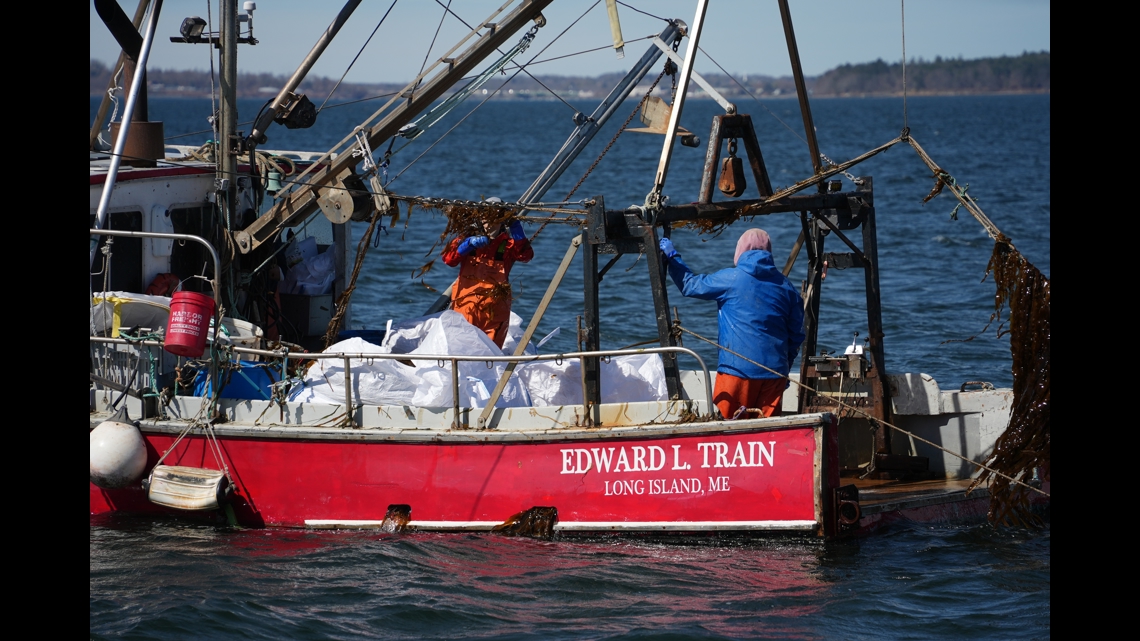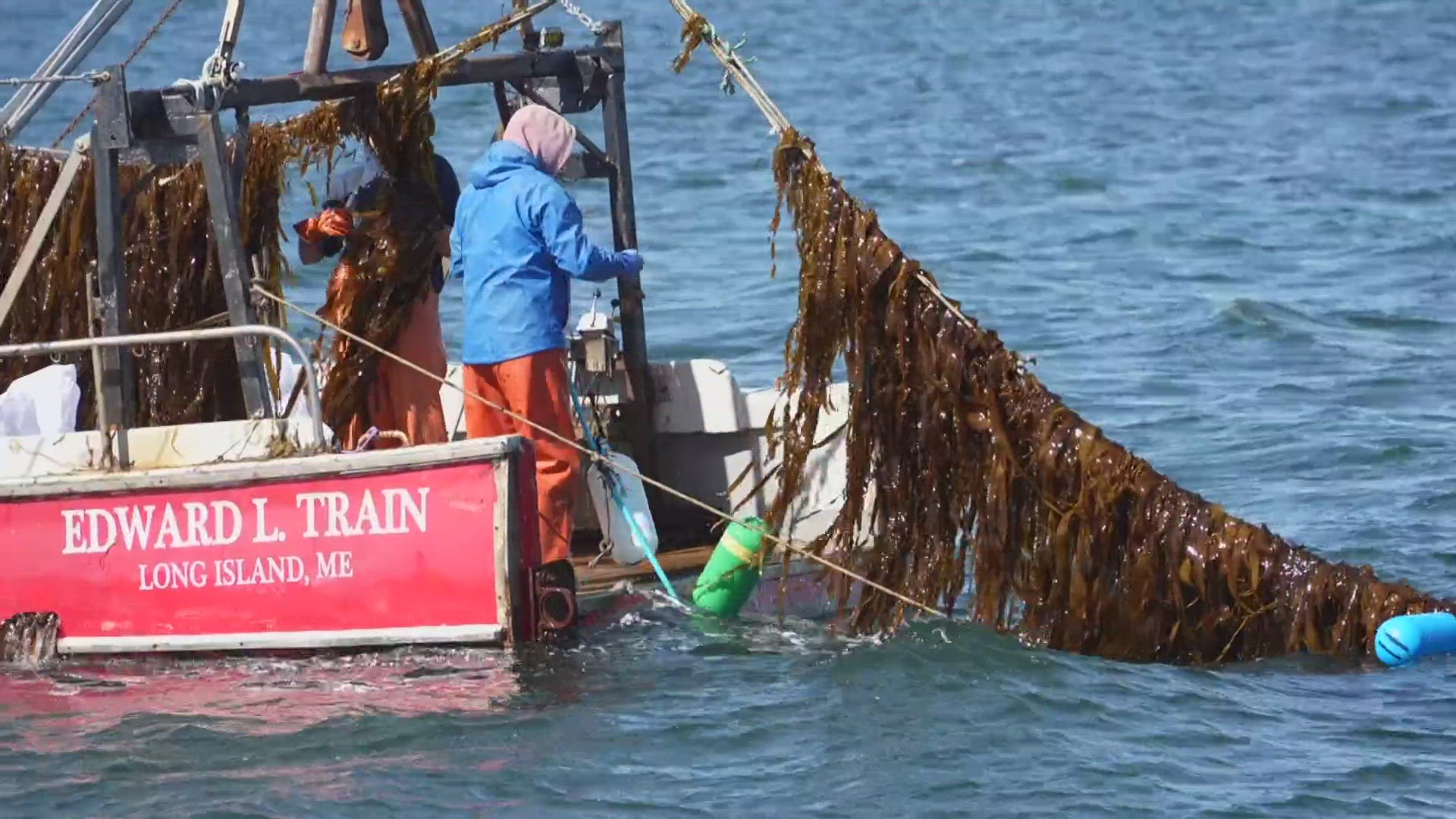PORTLAND, Maine — The last week of April brings about a type of harvest growing in popularity in the Gulf of Maine—kelp.
In what is arguably the most famous fishing region in the United States, kelp is a harvest Mainers are still learning. So, we joined a boat trip into Casco Bay to see kelp farming in action in an event hosted by the Island Institute and attended by elected officials and business leaders.
The Maine Department of Marine Resources lists 35 active kelp faming leases, with 13 others pending. Many of those farmers are already commercial fishermen who decided to add some income during an otherwise slow spring.
Steve Train is a Long Island lobstermen who, along with some of his peers, found kelp farming to be a seamless transition. Our charter boat pulled up near Train's red boat and watched a crew haul, cut, and bag the glistening green kelp plants that hang in long strips, thousands per line, from ropes submerged in the Atlantic.


Kelp farming is a relatively new practice in the area in recent years.
"Ten years ago, this was not common," said Nick Battista, the institute's chief policy officer. "The last six or seven years the market has expanded."
And now there is a market to support them.
Battista and others on the trip mentioned the network that has evolved around kelp. They said Biddeford-based Atlantic Sea Farms helps start kelp farms, even offering free seed and technical support, and then buys the harvested plants to process into value-added retail products like veggie burgers, smoothie mixes, and seaweed salad. Train is a client. In fact, Sea Farms CEO Briana Warner was on his boat, cutting kelp and untangling lines. Justin Papkee works with the company as well, and we watched his handiwork during our three-hour tour of the bay.
"What we're now being presented with is an opportunity to take new forms of food and experiment with them," said Bill Needelman, Portland's waterfront coordinator. "And put them into our pastas, and put them into our chowders, and put them into the things that are familiar to us and we eat on a very regular basis."
Back on the wharf in Portland, it's the slow season at Bangs Island Mussels. There's not a shellfish in sight as CEO Matt Moretti led the tour group through his warehouse. But all is not quiet.
Employees had just returned from harvesting kelp lines that grow next to their mussels. Bangs Island, another Atlantic Sea Farms partner, started growing kelp in 2011, within a year of getting the mussel operation up and running.


"And we didn't have any market," Moretti remarked of the early days. "We were just doing it because we wanted to do it; because we thought it'd be good for the world, for Maine."
Now, there's a market here, and a sustainable one. Kelp makes the ocean water around it less acidic, just what mussels want. That, along with its carbon capturing, is good for the planet. And good for paychecks in the spring.
Whether you have an appetite for it or are just kelp-curious, there's a kelp farmer in Maine ready to serve you.

